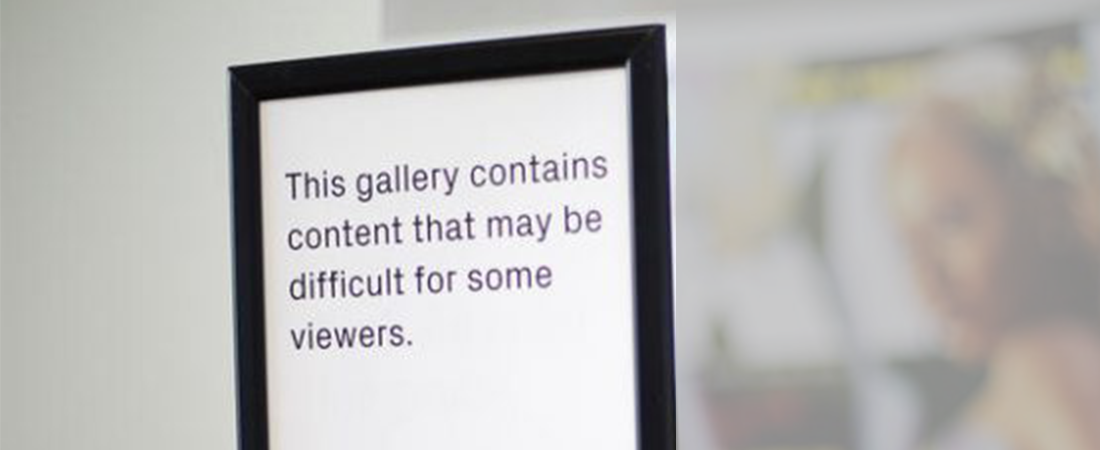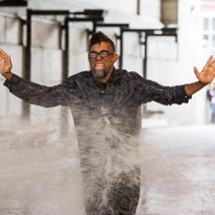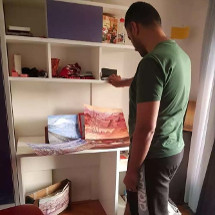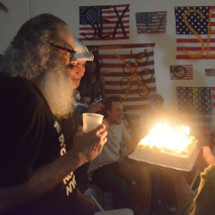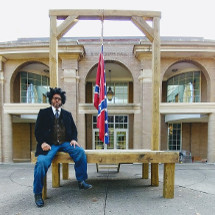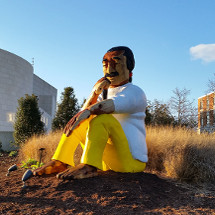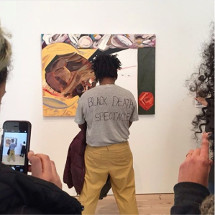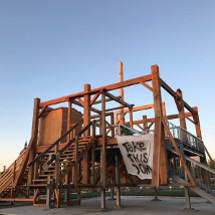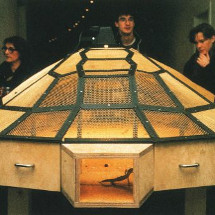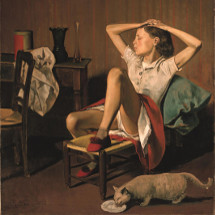NCAC’s Arts Advocacy Program (ACAP), launched in 2000, is the only national project dedicated to working directly with individual artists and curators involved in censorship disputes. Its main goal is to protect artists’ rights to participate in the democratic dialogue by defending public access to their work and supporting their ability to freely express views that might be unpopular or controversial. The project resolves controversies through education and advocacy, avoiding the need for legal action. Working within a larger organization allows us to capitalize on the fact that controversial issues are not confined to one medium of expression or one social sphere. We work with different constituencies to mobilize a wide base of support, and produce policy documents and materials for educational programs. We also analyze censorship trends and train artists to become their own advocates and develop strategies to counter censorship in all its ever-changing forms.
Learn more:
Censored Artists and Their Stories
Resources for Artists | for Curators and Art Institutions
Recent Art Controversies
Amicus Briefs
Commentary
Don’t Delete Art
Curatorial Workshops
One of the best ways to fight censorship is to call it out as it happens.
Please alert us to incidents you experience or witness.
CENSORED ARTISTS AND THEIR STORIES
RECENT ART CONTROVERSIES
L to R: 1) Early last year, the American University in Washington D.C. removed artist Rigo 23’s sculpture of incarcerated Native American activist Leonard Peltier it had installed in front of the Katzen Arts Center after receiving violent threats from outside groups. 2) When the 2017 Whitney Biennial opened, a painting by Dana Schutz, based on an iconic photograph of the mutilated body of Emmett Till lying in his open casket, sparked protests, a petition, and a social media frenzy. 3) Minneapolis’ Walker Art Center became the center of a heated controversy over Scaffold, a massive 2012 work by Los Angeles artist Sam Durant was met with a protest and demands that the work be dismantled.
L to R: 4) Also at the Walker Art Center, a traveling retrospective of artist Jimmie Durham rekindled a longstanding debate over the authenticity of Durham’s Cherokee heritage. 5) The Guggenheim Museum removed several works from its China exhibition in response to threats of violence. 6) The Metropolitan Museum of Art refused to remove Thérèse Dreaming, a 1938 painting by Balthus, after than 10,000 people signed an online petition demanding its removal in response to “the current climate around sexual assault and allegations that become more public each day.”
AMICUS BRIEFS
NCAC often leads or joins amicus briefs, “friend of the court” documents filed by non-litigants that advise appellate and supreme courts of relevant information or arguments.
Recently, NCAC signed an amicus brief arguing that the Congressional Art Competition violated First Amendment rights of a high school student when they removed his painting due to its allegorical depictions of police. In April 2018, NCAC joined PEN America and 31 other prominent arts organizations to jointly file an amicus brief urging the Supreme Court to strike down the third version of the Trump travel ban issued on September 27, 2017. NCAC and the College Art Association filed a brief opposing a law that would ban images of “animal cruelty” in a case that raised critical First Amendment questions that would affect a wide variety of valuable expression and undermine fundamental constitutional principles. And along with the ACLU and The National Youth Rights Association, NCAC submitted a friend of the court brief challenging a California law designed to prevent minors from purchasing “violent video games.”
COMMENTARY
NCAC contributes commentary on a wide range of free expression issues.
NCAC recently partnered with ArtsEverywhere to launch an online roundtable investigating the intersections of art, freedom and the politics of social justice. We have authored articles on far-ranging topics that include Net Neutrality, cultural appropriation, historical trauma and cultural ownership, flag desecration, the Visual Artists Rights Act (VARA), blacklists and boycotts, censorship and tribalism, structures of power, how threats of violence chill our public sphere and whether you can separate an artist from their art.
DON’T DELETE ART
Don’t Delete Art (DDA) is a collaborative project dedicated to defending freedom of artistic expression online. DDA features artists’ stories of online censorship; puts pressure on social media companies to reconsider overly-restrictive content policies; rallies more stakeholders to become advocates for artistic freedom online and; shares information on how to best navigate content moderation.
CURATORIAL WORKSHOPS
Initiated in 2015, ACAP’s Curatorial Workshops present crucial opportunities for curators to candidly discuss the challenges they face in presenting controversial artworks, and identify tools to present such works successfully. Through a participatory model of engagement, curators collaboratively identify strategies for resisting the pressure to self-censor and for prioritizing creative inquiry and expression in the arts, all while expanding upon existing professional support networks. ACAP’s Curatorial Workshops contribute to a visual arts culture that emphasizes nuance, education, openness, and a diversity of ideas.



